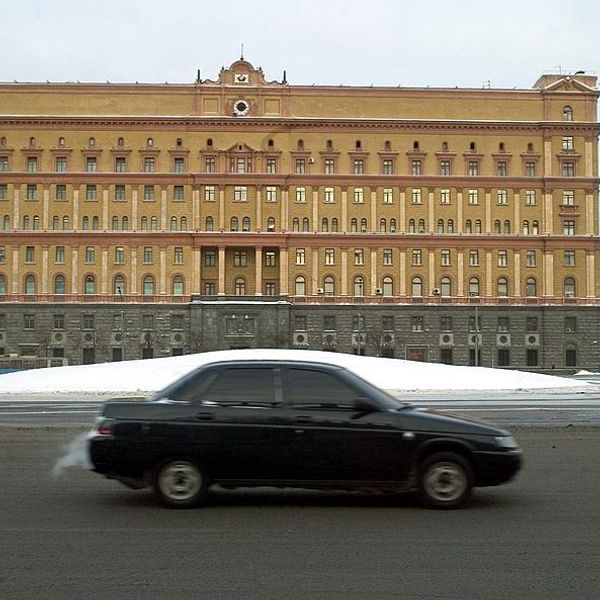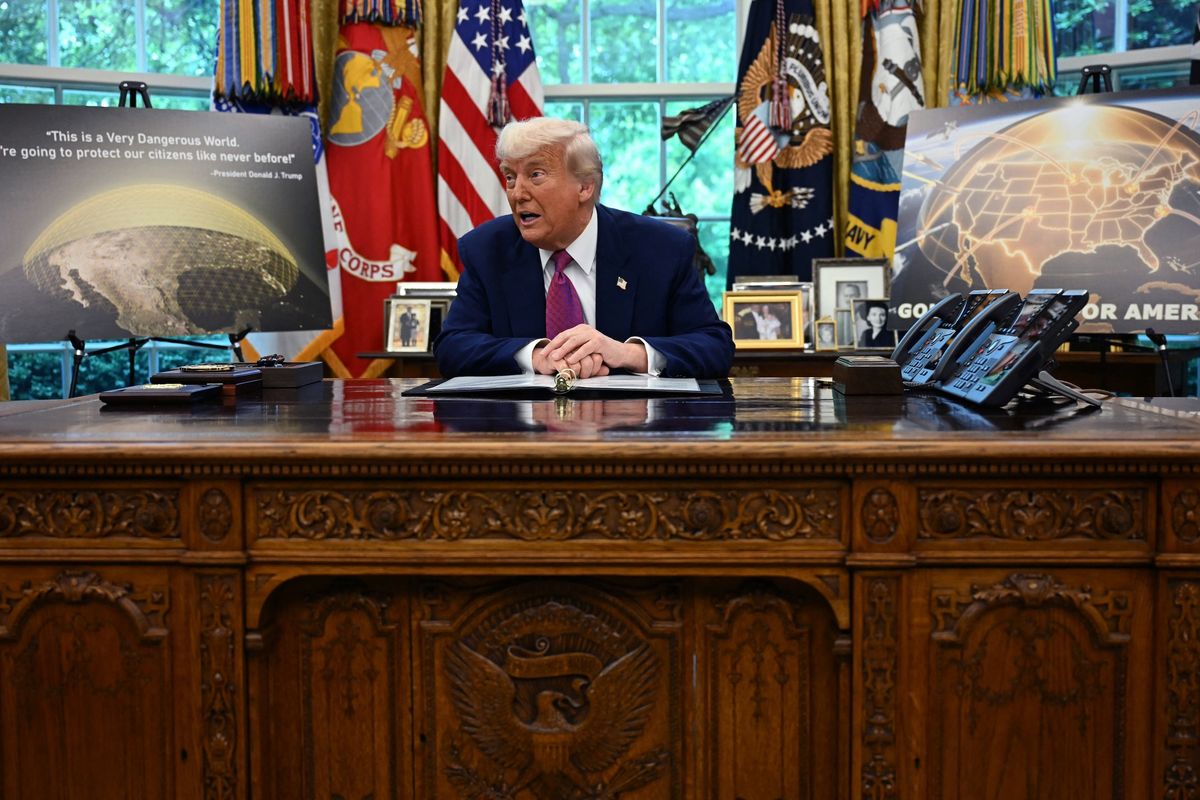The House Foreign Affairs Committee is focusing on reported intelligence that Russia placed bounties on the lives of US troops in Afghanistan. The committee is expected to hold a hearing on Thursday titled, “Russian Bounties on U.S. Troops: Why Hasn’t the Administration Responded?” On Friday, the committee will address the broader issue of managing the Russian threat in a session with former CIA Director and Secretary of Defense Leon Panetta.
The Cipher Brief spoke with our expert, former Senior CIA Officer Steven Hall, who spent much of his career focused on the Russia threat, to get some ground truth in terms of Russian strategies in Afghanistan and elsewhere and to get his thoughts on what to make of the latest news that bounties were placed on the lives of US troops in Afghanistan. Hall also served as CIA’s senior liaison to Congressional oversight committees during the course of his career.
The Cipher Brief: Based on your experience, what can we realistically expect the Russians are doing in Afghanistan to try to disrupt US efforts there?
Hall: The Russians want the United States out of Afghanistan. They also want to try to minimize American soft power in Afghanistan; the diplomacy, aid, all of those things. I think you're right to look at it from a historical perspective. Certainly, we can go back as far as the American government supporting the Afghans in trying to get the Soviets out of Afghanistan in the late eighties and the early nineties.
I would argue that it probably goes back further than that in the sense that in Soviet times, countries neighboring Afghanistan, like Uzbekistan and so forth, were formerly part of the Soviet Union. So, the Soviet Union and now Russia, have always had a very deep interest in Afghanistan, which is effectively one of their neighbors.
In the past, the Russians have identified places like Afghanistan as potential breeding grounds for Islamic extremists, who are closer to Russia and able to carry out those types of terrorist operations inside of Russia. There is a long history of the Russians wanting to consider Afghanistan more of their area of influence, their backyard, as opposed to an American one.
And remember, the United States has conducted several successful military operations against what turned out to be Russian mercenaries in Syria, that resulted in a number of Russian deaths. I think that probably is also on the minds of the Russians as they try to expand their influence in the region.
Geopolitically, one of Vladmir Putin’s main goals is to present Russia as a great power with the ability to exercise its will internationally in various theaters, whether it's Syria, Libya, or Afghanistan. All of those things come together when it comes to Russia being interested in Afghanistan, interested in the United States being out of Afghanistan and their willingness to deploy all their methodologies to make that happen. I think you're going to see evidence of that continuing in Afghanistan.
The Cipher Brief: To your point, here we are again in a situation where the US and Russia are interwoven in this gray zone. If Russia did issue these bounties, what would be the most effective US response?
Hall: There needs to be a response. There may be things going on behind the scenes that we don't know about. It could be that we have sent messages of disapproval, of concern, of anger, whatever, to Moscow via a number of different means. A normal administration has the ability to do that when you want to register displeasure, you can do it diplomatically.
If there's an intelligence element, as there is in this case – and if it's accurate, and if the GRU unit is the same unit that was involved in the attempted assassination of Sergei Skripal in the UK, and also engaged in the interference in our election process in 2016, then senior intelligence leaders can send messages at the request of Washington to their Russian counterparts. So I'm hoping that there's something like that going on, because I think one thing that certainly all the Russia people, the Russia watchers, that I've spoken to have agreed with, is that Russia will not stop pushing the United States, will not stop trying to accomplish disruptive actions against the United States, until such times as there's pushback from the United States.
At the very least, from a public perspective, this is just common sense. If you're the Commander-in-Chief, and if you get information indicating that people are offering money to kill your soldiers, even if you don't know a hundred percent, whether or not that is absolutely accurate, it seems to me, as the Commander-in-Chief, you would make a pretty strong public statement saying something along the lines of, "If this is true, Russia is going to be held to account," or "These reports are alarming enough for me to get on the phone with Vladimir Putin, or to have my Secretary of State get on the phone with his Russian counterpart." And to my knowledge, none of that has been done. Even if you take into account the idea that the White House is putting out there that somehow the president wasn't formally briefed on this, or was unaware of it, he's certainly become aware of it now and has had time to make a public statement about this. And he has not. I think the Russians will take advantage of that and see this as, "Okay, well, we're not getting a lot of pushback from the Americans on this, so we see no reason to stop it."
The Cipher Brief: Do you think the US has the advantage when it comes to this gray zone competition going on with Russia across the globe?
Hall: I think in the long run we do. In the short term, Russia can be very effective with its hybrid warfare tactics, whether it's information operations in the United States in the lead up to elections, or whether it's outright propaganda operations targeting the United States and the West and using social hot button issues to divide the country.
I can imagine Vladimir Putin was extremely pleased recently, not only having guaranteed himself another couple of decades in power, but also, because of the problem that has emerged between France and Turkey, NATO allies, in terms of France deciding it's not going to participate in one of the NATO exercises because Turkey is also there. Dividing NATO, the dividing of the West, the dividing of the United States is something that Russia can be effective at in the short term and we've seen that just over the past couple of years.
But at the end of the day, real geopolitical power depends on more than just your ability to disrupt things. It has more to do with your stability economically, geopolitically, and to be able to control the geopolitical stage over a much longer period of time. Over decades, as opposed to a number of years. And in that, the United States has a distinct advantage over Russia, which continues to struggle economically, socially and in all sorts of different ways. I think in the long run, we have the advantage. In the short run, Russia will be able to do some damage. By the way, China also has a long run advantage over Russia, and it will be a good competitor for the United States in the decades to come. I don't think that will be the case with Russia.
The Cipher Brief: When it comes to the issue of the recent New York Times report and disputes over whether or not the President was briefed on intelligence indicating Russian bounties offered on American lives, one of the issues that was raised in that back and forth was the idea that there was not a consensus among the Intelligence Community. For those who understand the IC, not all 17 agencies are equally represented around the table in terms of having to agree on something like this, so that kind of feels off base.
Hall: Yes. In my view, that whole assertion that, “Well, there wasn't consensus, so therefore it wasn't briefed,” is ludicrous. That's simply not the way it works. And I think a whole bunch of pundits and others like me have said, "Look, that's just not how it works."
I've seen this in final intelligence reporting, there are specific mechanisms that allow for, at the bottom of the report, saying this particular agency or that particular organization doesn't agree or doesn't agree with the same strength. That's all part of the normal process.
You're right, although there are 17 members of the intelligence community, it's really the big three or four, it's NSA, CIA, and to the extent that the military is involved, it's going to be, DIA. Barring specific situations, Coast Guard Intelligence is probably not going to weigh in on something like this because it's outside of their area of expertise. But, if you just look at the different ideas that have been floated, in terms of what happened with this information, frankly, the most benign is that, someone decided, "Okay, well, we don't have all the information yet, so we're not going to forward it up." That's the most benign. And that's still pretty bad, because that's a significant failure, in my view, when you're talking about threat information.
But if you get into what's a more likely scenario, that The New York Times reported on that the president has sort of a tripwire with regard to Russia and anytime Russia is raised, he considers it a question to the validity of his presidency, then we have another problem. He's fundamentally insecure about that. So, knowing that, if briefers or the NSC are telling people, "Look, don't say too much about Russia, because he just goes off the rails and then loses it, his head explodes, and so don't talk about Russia unless you absolutely have to," and therefore it gets buried in a written product that they know he's not going to read, that's horrific. That's not the way the system is supposed to work. So, if he says he didn't know, either the system is broken or he's lying. That's another very likely scenario, given the president's problems with truth, and that's bad too.
Read more expert-driven national security insight, perspective and analysis in The Cipher Brief














